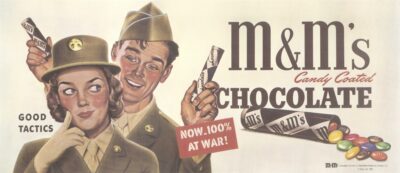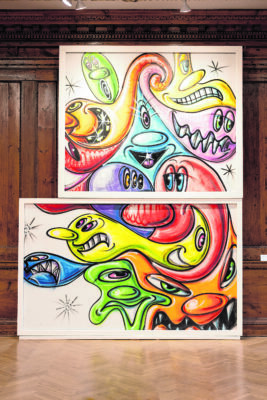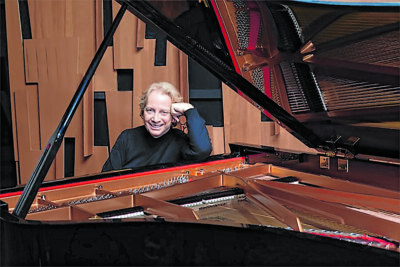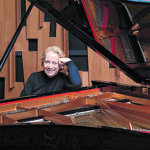Kimberly Akimbo is the newest musical from Pulitzer Prize-winner David Lindsay-Abaire and composer Jeanine Tesori that follows Kim, a bright and funny Jersey teen, who happens to look like a 72-year-old lady. And yet her aging disease may be the least of her problems. Forced to maneuver family secrets, borderline personalities, and possible felony charges, Kim is determined to find happiness in a world where not even time is on her side.

Tesori, a graduate of Paul D. Schreiber High School in Port Washington, has written a diverse catalog for Broadway, opera, film, and television.
Leading up to the Tony nominations, which will be announced on May 2, we had a chance to speak with Tesori about her musical journey with the show.
Q. What’s the process for developing music around a Broadway show?
“David [Lindsay-Abaire] and I had written another musical together; we wrote Shrek the Musical. We meet all the time to come up with ideas. I suggested to him that we do one of his own plays. They knew Kimberly Akimbo was the one and immediately began writing the music for it.
“We [David and I] were inspired by our wonderful dysfunctional families, holiday dinners and everyone has an Aunt Deborah who says the wrong thing at the wrong time or has done some time in jail. We put all our ideas up on a giant board and we start planning, this scene and song might go together here and what would this song sounds like it could go here.
“It takes years of meetings and then you have to put it before an audience, does anyone relate to this. Is it funny enough? Is it moving enough. Our first meeting for Kimberly Akimbo was in 2012. We opened the show in 2022.
“For me they take that long because I think it’s how you make something that lasts.
“My nonna lived with us on Long Island. She was, forever for me, like a 12-year-old because that was the age she was pulled from school in Italy before she came here to the United States. She came here when she was in her 20s. She always had this incredible twinkle in her eye and a playful spirit. She told me something once, she said she would look in the mirror and be so surprised to see someone in their 80s; she always thought she would see a 12-year-old looking back at her. That always stayed with me.
“When David and I were talking about things once, about how life is. Life can be short or long, but it has a timeline. You’re born, you live and the then you are no longer alive, and people go on after you, but the joy that you can be who you were even who you were as a kid even as you mature, you can keep that spirit alive even though the world sees you as an older person.”
 Q. How do you create something that accurately complements a screenplay?
Q. How do you create something that accurately complements a screenplay?
“I think I liken it to parenting a kid. The kid is born and then you think, huh…it doesn’t come with any operating instructions, let’s see what this kid needs. Oh, this kid is shy; this kid needs braces. What are the bones of this play? What is this play about? What has happened in our own lives that is like this?
“My job is to find out why they [the audience] are bored in that spot. Is it the cut? Is the song in the wrong place?”
“My father was a doctor on Long Island; he was a scientist, so we used to talk about science a lot. It’s sort of the method of [deduction] and figuring things out. I listen for the queues that the audience is not connecting with the scene, shifting in their chairs, coughing, things like that.”
Q. How did you get involved in composing?
“I started playing piano when I was three. Long Island is a center for the arts. I studied with this incredible music teacher, Richard Benda [on Long Island]. I did not even see a real musical until maybe high school, but certainly when I attended Weber. I went to Barnard to study science and medicine. I discovered theater by working at a theater camp.
”When I was 19, I answered an ad in the local newspaper for John Philip Sousa Elementary School for a musical director for the school’s play, Bye Bye Birdie. I got the job. It paid $300. I thought my ship had come in. That started everything for me.”
Q. Who has influenced your career?
“There are two woman that were incredible influences on my career as a musician. Joan Popoleo was my fifth and sixth grade music teacher at Flower Hill School [approximately 1971]. She was a strong teacher. I did the Sound of Music with her and I remember that I didn’t like turning pages so I memorized the score; I had it in my head.
“There was also another music teacher at Flower Hill who I would love to find. I cannot remember her name off the top of my head right now, but she was there around 1968 or 1969. [Lee] Aschenbrenner was the principal then. I would love to find her and acknowledge the gift that she gave me; she was one of the most gifted music teachers ever.”
Q. What’s the best part of composing?
“It’s a doorway, walking in the shoes of others. I don’t write words; that’s not my gift. My grandfather was a composer. I love it to try to make people feel something. It sounds so simple-minded. It’s one thing to read something, but as soon as you put it to music, you hear a certain chord and it makes you cry. There’s a scientific reason behind it. You can translate what’s happening in the world through music. As soon as you put strings underneath someone talking you instantly feel sad. It’s very powerful.
“I did not know that you could do music for anything other than doing it just to do it. It never occurred to me that you could make a living playing music, even as I began entering the career. My parents were completely supportive of my decision to leave pre-med and pursue music.
“My dad said, ‘my gift to you is to is to graduate debt-free, but now you are on your own and you have to make your own way,’ and I did.”
Q. How are you feeling leading up to the Tony nominations?
“Awards are incredibly helpful, but they are not a reflection. It’s all very subjective, but the awards help us get the word out.
“I come from a family that values humility above all, civic duty, decency, owning up to your own stuff. My dad used to say, ‘You look at yourself in the mirror at the end of the day and you have to reckon that.’ I credit my father’s work ethic from his upbringing and working for his father who owned a fruit store in Great Neck in the 1960s.”
Q. What do you hope it the audience take-away from Kimberly Akimbo?
“Kimberly Akimbo is like the experience of having a great full meal; it’s great big belly laughs; it’s a cry; it’s a full experience.
“David is writing about what he knows. He grew up in South Boston and comes from a working-class family. The characters reflect the people he knew. The story feels very true.”
Tesori is one of the first female composers commissioned by the Metropolitan Opera. Her musicals include Fun Home (Tony Award, Pulitzer finalist); Soft Power (Pulitzer finalist); Caroline, or Change (Olivier Award); Violet; Shrek; Thoroughly Modern Millie; Twelfth Night. Her operas include Blue (Libretto, Tazewell Thompson); A Blizzard on Marblehead Neck (Tony Kushner); The Lion, The Unicorn and Me (J.D. McClatchy); and the upcoming Grounded (George Brant).
In addition to her work as a composer, Tesori is the founding artistic director of New York City Center’s Encores! Off Center Series, a lecturer at Yale University, and most recently the supervising vocal producer for Steven Spielberg’s West Side Story.
Kimberly Akimbo opened in November and is playing at Booth Theatre, 222 W. 45th St. in Manhattan. The show runs approximately two hours and 25 minutes with one intermission. The Tony awards will be announced on June 9.
 Visit www.kimberlyakimbothemusical.com for details and tickets.
Visit www.kimberlyakimbothemusical.com for details and tickets.
Editor’s post-note: Kimberly Akimbo won five of its eight Tony nominations, including Best Musical, Best Book of a Musical and Best Original Score.



















